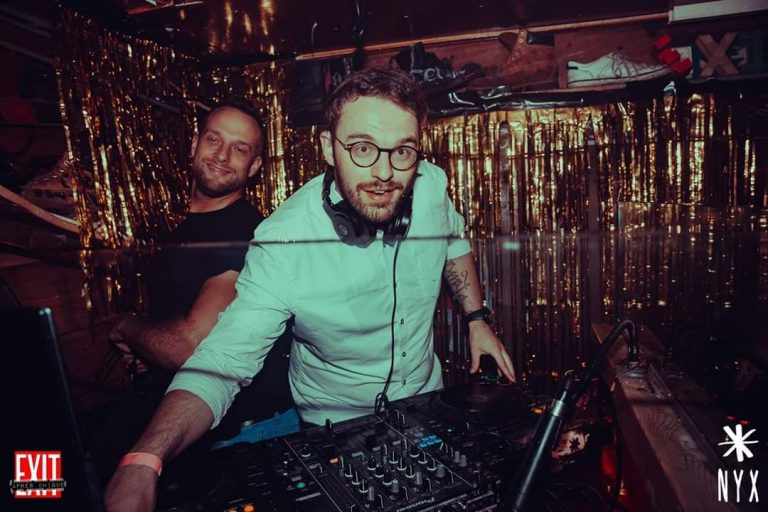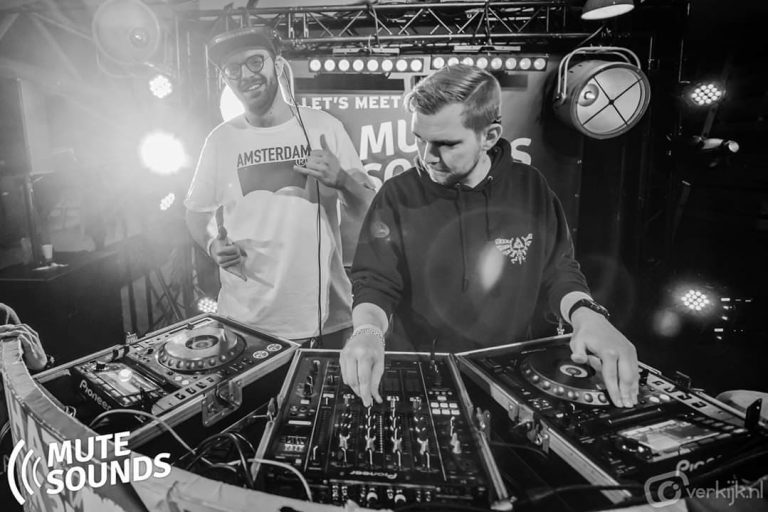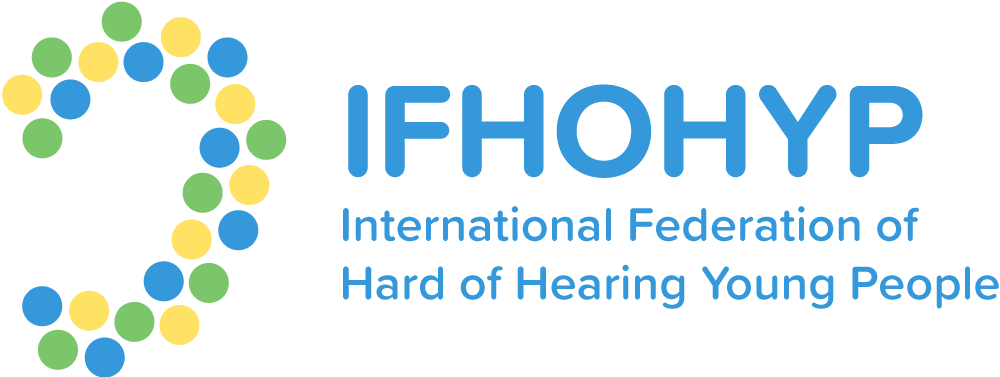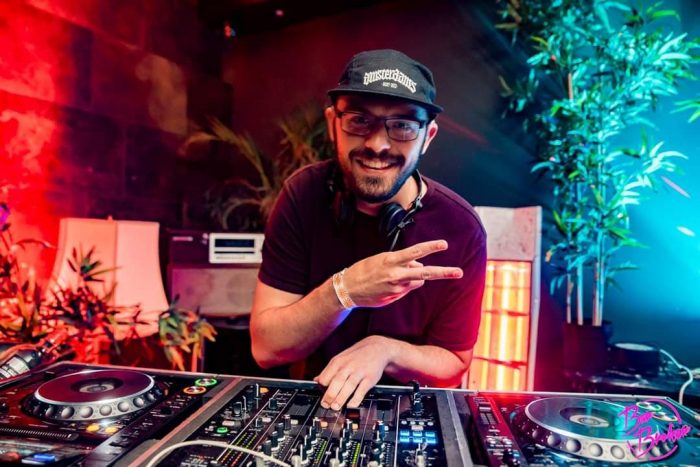MOKUMMER AND THE SOUND OF MUSIC (starring David Aris)
MARIA: I heard through the grapevine that there is a person with hearing loss who was keen on designing furniture and finally became a DJ. Gossip is gossip, so the best way to be sure is to ask you directly. Could you introduce yourself to everyone who didn't have a pleasure to meet you yet?
DAVID: Hi everyone! My name is David, 24 years old, and I am not studying furniture design anymore, unfortunately. I do still have a big love and passion for it! I've learned a lot useful skills along the way, I can use when I need to build something, like a DJ booth for example (which I did)!
I'm an Amsterdam born and raised fella, 'Mokummer', as we say. I love the city and its cultural diversity, as well as the views, especially the infamous Canals of Amsterdam! If the weather's in good mood, you can take some really awesome pictures. I have two jobs at the moment, which I do with much fun and passion! The first job is barista, but not your ordinary barista. I work for a company called Ctalents, and they have a Sign Language Coffee Bar, so it goes without saying that I get orders for coffees in Sign Language! Let's say someone wants a cappuccino, that person has to sign ‘cappuccino’ so my colleagues can understand what the client wants. We have a touchscreen with pictures of the coffee we serve. So if the client touches cappuccino, he sees a video tutorial on how to sign ‘cappuccino’! That way the "barrier" between both worlds - the deaf/hard of hearing and the hearing - gets broken.
The other job is DJ, which I've been doing for 7 years, it's in my opinion the best job in the world. I've met a lot of friends who have been DJing as well, some have been doing it for a long time, and some just started. Sometimes it was a challenge to get the crowd rocking and dancing to the music, but I never gave up until I made them dance. To me that is the best gift I can receive as I'm "playing the decks", as we call it. I was also praised a lot for doing it despite having a hearing problem. I know some other deaf DJ's, and they are amazing. For now I've played at a lot of venues and clubs in and around Amsterdam and once in Antwerp, but a lifelong dream of mine is to perform outside of the country, in Paris or Barcelona for example. I've been deaf since the age of 8, and since then I've received 2 cochlear implants, the right ear when I was 8, and the left one at 14. Since then my hearing improved and I got to do a lot with music, which I love since childhood. Fast forward to 2013, I started getting lessons from a good old friend of mine. Since that day, I believe it was somewhere in September of that year, I got hooked to the thought of being a DJ. That feeling never faded away. Nowadays it's still an amazing feeling when I play music for the people that love music as well, every time I do it!
MARIA: Wait, I'm just looking for my jaw, it seems to be lost on the floor after jaw-dropping effect... Wow, I just feel more and more impressed. OK, OK, I found my jaw, now we can continue! Thank you so much for introducing yourself, 'Mokummer'! How did you figure out that furniture design sounds like something what can be your passion? It sounds quite unusual.
DAVID: Actually, discovering furniture design as a passion was quite the surprise. I did have a bit of love towards art and architecture. I started to think about how things were made at 13 or 14 years old. One of my favorite TV programs was How it's Made and MythBusters. I was intrigued by making stuff when I saw how things were made.
MARIA: How did the studies look? And that’s amazing that you built a DJ booth!!!
DAVID: I was like: Okay, this is interesting. And I did it for 4 years, including an amazing internship in Italy through the Erasmus+ Programme! I highly recommend it to people who want to do an Internship in Europe! The internship lasted 2.5 months, and the rest of the education took place in the Netherlands. It was mostly hands-on, with assignments, such as building a chair or table.
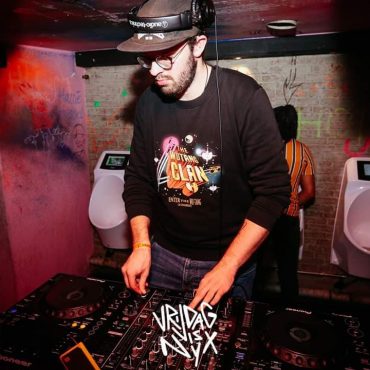
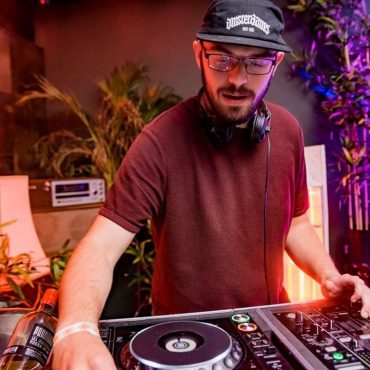
MARIA: Sign Language Coffee Bar is one of the most incredible ideas that I've ever heard about and a magnificent way to communicate with people. How did you find this place?
DAVID: I had a couple of jobs as a cabinetmaker and as yacht builder as well, but the pressure at the workplace was high, especially for HoH and/or CI users like me. I also have autism, which is very common among people with hearing loss. This combination isn't the best one. Also, the rest of the staff were more experienced than me, and I was fresh out of school. After nearly 3 months of unemployment I got a new job, and that is the barista job I still have today! I already know the concept, and knowing the "old sign language" I still thought, why the hell not!
MARIA: Does an opportunity of communication in sign language attract random, hearing people actually? I encountered so many situations when hearing people were a bit afraid of facing ‘something different’.
DAVID: I already knew that people would sound a bit scared about how they can communicate with someone on the "other side" of the hearing spectrum, but once I explained that there's not much to worry about, they said: hey that's actually pretty simple!
At times it would be frustrating because the hearing people would not understand how a deaf person’s brain works, but now the sign language coffee bar actually shows it's not so much of a problem, sometimes you just need an example.
Another helpful thing was giving an explanation on how you can deal with me, communicate with me, which I never get tired of doing.
MARIA: Your work and your passions seem to demand a bit of flexibility, how do you deal with that?
DAVID: It is correct that sometimes being a DJ by night and a barista by day can be stressful. I get most of the stress at my day job because some days can be hectic and chaotic. I handle the stress by switching: once I'm done working, I can relax at home, and when I DJ, I can release the stress by playing music I like, and seeing other people enjoy the music makes me happier, which is an excellent anti-stress tool. Basically I try to produce happiness and joy as my 'weapon' against stress.
MARIA: Back to the music…Which kind of music do you like? How do you perceive music as a person with hearing loss? Do you think that it’s the same for every music lover, or are there any differences?
DAVID: The genre I like most of all is Hip Hop and related genres like Trap or Grime music. I did have some music experience before losing my hearing, but after it happened I was like: this is not how music is supposed to sound! After years of auditory training I started to recognize and memorize more and more, which led me to the conclusion that I perceive music just like hearing people, but the listening part (hearing music through the Phonak Compilot for example) is definitely different.
MARIA: We’re speaking about you as a Deaf DJ - I’m curious if you have a Deaf audience sometimes? To what extent will this kind of event, sort of performance be accessible for them?
DAVID: If I'm DJing in front of a deaf crowd, it's actually very accessible for if they have the right equipment. In Antwerp, a good friend of mine organizes events specifically for deaf crowd, and I did a show there. Went very well! They also had sign dancers. That was awesome to watch, and seeing these people enjoy the music was so heartwarming. There were even hearing people in the crowd who started to sign to their deaf friends so that they could follow the music.
MARIA: Sign dancers? Is that related with sign language interpreters?
DAVID: Sign dancers are basically sign language interpreters that dance and sign at the same time.
MARIA: Regarding of Internship with Erasmus programme: is it difficult to apply? Especially when having hearing loss? Do you have any advice on that?
DAVID: It was not so hard to apply. I would recommend getting all the information in an email and ask whether they can arrange a sign language interpreter in the country of interest. In my case I didn't need one, but I did an online course of Italian. Also, do some research about the culture of a specific area, like Barcelona for example, the way they communicate could differ from that of Madrid, the way of doing things. A sign language interpreter is only needed if the conversation goes in sign language. Another thing that helped me a lot was google translate and use the voice with it. There you go!
There we go: nothing is too hard if we’re really passionate in what we’re doing. It’s a matter of trying and checking where this path leads!
